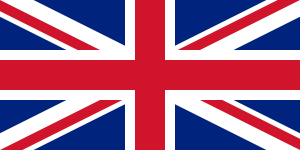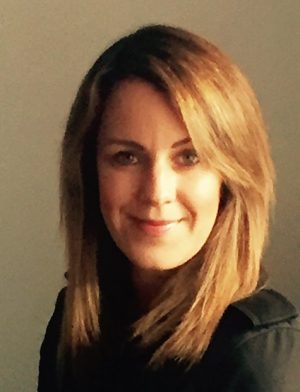Charlie Gard: The General Election Isn't The Only Important Decision On June 8
The UK Supreme Court is the last hope for a treasured little boy and his parents.
 “[T]he power of the lawyer is in the uncertainty of the law.”
“[T]he power of the lawyer is in the uncertainty of the law.”
— Jeremy Bentham
Charlie Gard is ten months old and currently staying at Great Ormond Street Hospital in London (GOSH), where he has been for the last seven months. He has an extremely rare genetic condition known as mitochondrial DNA depletion syndrome (MDS), and he is one of only sixteen known cases in the World. In simple terms, MDS causes progressive muscle weakness, and in Charlie it has also caused structural brain damage.
Tragically, Charlie was born a healthy baby in August last year, and it was only after eight weeks that his parents took him to hospital to discover his condition. Since then his parents, Chris Gard and Connie Yates, have fought tirelessly to find a way to help their beautiful son. Their research presented a ray of hope when they came across a doctor based in the United States who provides nucleoside bypass therapy, an oral medication that can improve but not cure the condition. Charlie’s parents’ crowd-funded the $1.5 million needed to pay for the treatment for Charlie, but they have been blocked by GOSH from taking him to the United States. An agonising court process has ensued during which GOSH applied for permission to the High Court to switch off Charlie’s life support and allow him to die. Both the High Court and subsequently the Court of Appeal in the UK ruled in favour of GOSH, accepting the hospital’s assertion that the treatment is not in Charlie’s “best interests”.

The Business Case For AI At Your Law Firm

So on June 8th, three Supreme Court judges will determine whether Charlie’s case can receive a full Supreme Court hearing. The Supreme Court is the final court of appeal in the UK, and Charlie’s last chance in the legal battle.
The rarity of Charlie’s condition means the treatment is experimental, and it is not certain whether it will have any positive impact. The US doctor offering the treatment openly says that it would be uncharted territory and that Charlie’s case is severe. There are no false promises, nor are any miracles expected. Charlie’s parents acknowledge that their son won’t be cured, but they do not accept that he is beyond hope of improvement in some form, and there are documented cases of other children having received the treatment and having made improvement. Notably, Connie Yates is a carer for adults with learning difficulties and is more than qualified to understand what hurdles may lay ahead if her son has the chance of a life with disabilities.
I suspect for US readers of this article, the concept of parents being blocked by the State from taking their son to access medical treatment for which they can afford independently is unimaginable, unthinkable, cruel and unjust. As a parent of two children myself, there is a deep rooted ethical sense that the UK establishment is failing Charlie Gard. In the UK it is not uncommon for experts in a case like Charlie’s to have their identities protected. Those anonymous experts will not have spent hours, day’s weeks and months at Charlie’s bedside monitoring his every moment as his parents have done. They won’t have witnessed what he is and isn’t capable of. In Charlie Gard’s case, the true experts are his parents.
It echoes the case of Ashya King who, in 2014, aged five, had a brain tumour. His parents disagreed with the Southampton General Hospital on the most appropriate form of treatment for Ashya and wanted to have him treated with proton therapy, which they felt was less invasive than radiotherapy. Proton therapy was not available in the UK, although in some cases the National Health Service had funded the treatment abroad. In Aysha’s case, he was denied the right to travel to receive the therapy, and accusations were levelled at Aysha’s parents by the hospital that they were jeopardising his life expectancy by denying their child the treatment being offered in the UK. Aysha’s parents fled with Aysha to Spain, where they were subsequently arrested and put in prison. However, the UK prosecutors withdrew their arrest warrant shortly thereafter, and Aysha travelled to Prague’s Proton Therapy Center, where he received proton beam therapy. Three years later, Aysha is leading a cancer-free life in Spain. Naturally his parents are wary of returning to the UK, where they are sceptical of the institutional powers.
Sponsored

Early Adopters Of Legal AI Gaining Competitive Edge In Marketplace

The Business Case For AI At Your Law Firm


Navigating Financial Success by Avoiding Common Pitfalls and Maximizing Firm Performance

Navigating Financial Success by Avoiding Common Pitfalls and Maximizing Firm Performance
In a testament to Aysha’s case, it was announced last month that the UK has just received its first proton beam therapy machine, which will be installed in a cancer treatment center in Wales. New research on proton beam therapy originating from a study at Massachusetts General Hospital demonstrates that it generates fewer side effects to the heart and lungs, carries less risk of secondary cancers, and reduces hearing loss and cognitive impairment factors.
Aysha’s parents made a decision in the best interests of their son and, despite medical megalomania, their son is now alive and healthy.
In English law, each case will be decided on its own set of facts, from the assumed point of view of the patient and their best interests. Charlie Gard’s case appears to raise fundamental questions about what “best interests” means when applied to rebut a presumption of a right to life. Case law indicates that an assessment of whether the patient’s life would be intolerable should not be dismissed as a factor in balancing best interests. Is the court certain Charlie’s life would be intolerable? Charlie’s parents are not convinced it would be. If, at law, Charlie’s interests are of paramount concern, that does not mean that the standpoint of a reasonable and responsible parent who has their child’s best interest at heart ought not to be given weight (Balcombe LJ in Re J [1993] Fam 33 at 52B-C). Chris Gard and Connie Yates appear to be exceptionally reasonable and responsible people who just want to give their little boy a chance of a life with the possibility of an improved existence to his current state.
Charlie Gard’s parents will await the decision on June 8th as to whether they may continue to fight against their treasured little boy’s state-ordered death sentence. They rest their final glimmer of hope for Charlie’s life on the eminent Richard Gordon QC and three Supreme Court judges.
To Chris and Connie – never lose hope.
To London and Manchester – we will never be defeated by terror.
Sponsored

Is The Future Of Law Distributed? Lessons From The Tech Adoption Curve

Legal AI: 3 Steps Law Firms Should Take Now
 Jayne Backett is a partner at Fieldfisher LLP in London specializing in banking transactions, with a particular focus on real estate financing. Fieldfisher is a 600-lawyer European law firm, with a first-class reputation in a vast number of sectors, specifically, financial institutions, funds, technology and fintech, retail, hotels and leisure, and health care. Jayne has a depth of experience in mentoring and training junior lawyers and has a passion for bringing discussions on diversity in law to the forefront. She can be reached by email at jbackett@hotmail.com, and you can follow her on Twitter: @JayneBackett.
Jayne Backett is a partner at Fieldfisher LLP in London specializing in banking transactions, with a particular focus on real estate financing. Fieldfisher is a 600-lawyer European law firm, with a first-class reputation in a vast number of sectors, specifically, financial institutions, funds, technology and fintech, retail, hotels and leisure, and health care. Jayne has a depth of experience in mentoring and training junior lawyers and has a passion for bringing discussions on diversity in law to the forefront. She can be reached by email at jbackett@hotmail.com, and you can follow her on Twitter: @JayneBackett.







